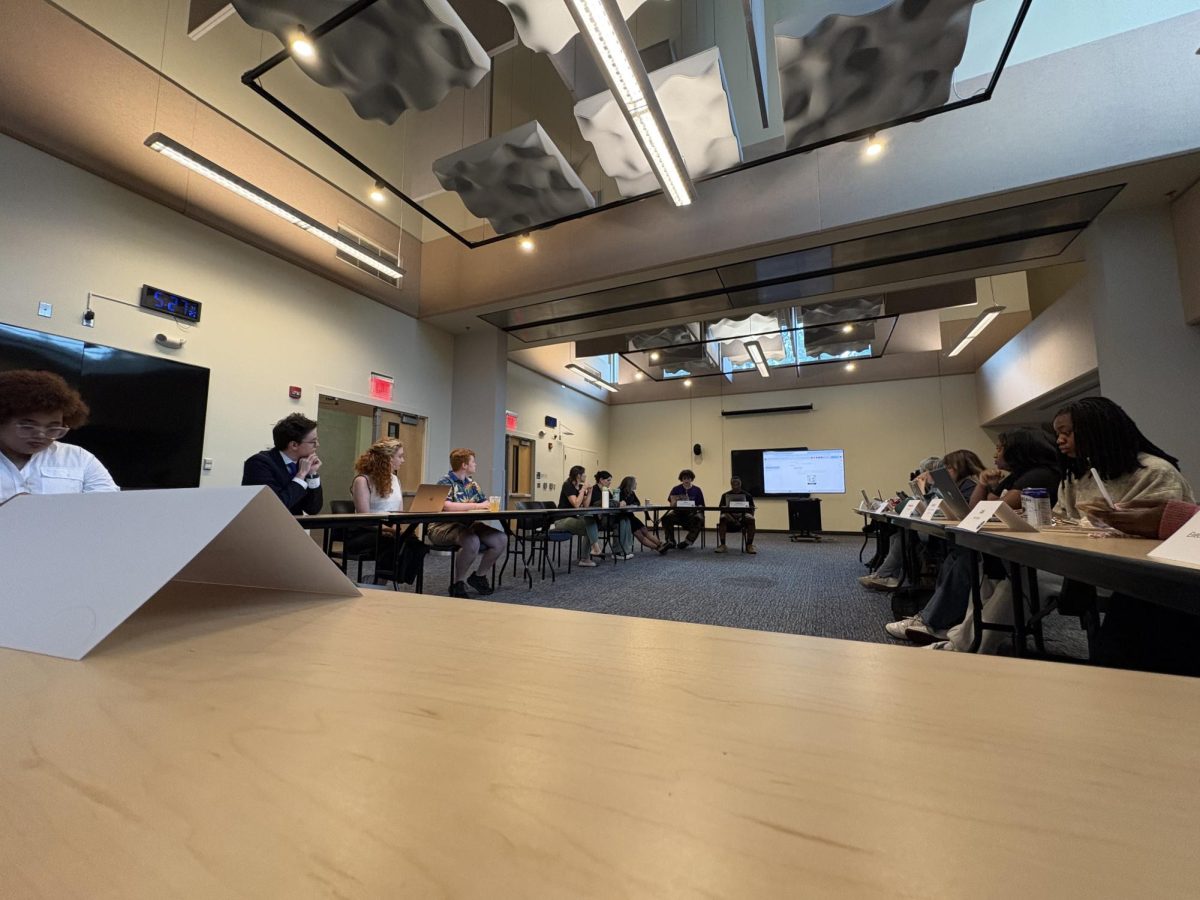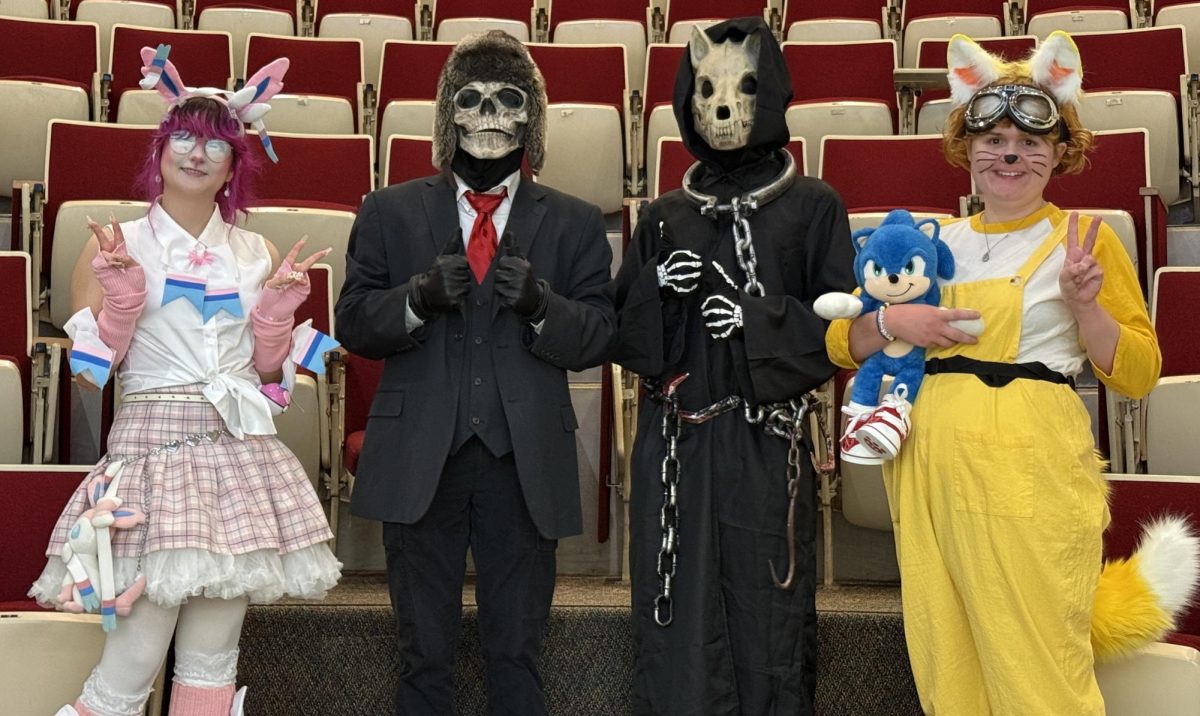By Emma Shock
A&F Staff writer

[email protected]
The line outside the doors of Kimmel Arena continued to flow into the parking lot as community members arrived early to find prime seating once admission began. The audience rushed in to fill the levels of seats before the start of the night’s presentation.
The New York Times columnist David Brooks gave an open lecture at UNC Asheville addressing his thoughts on the current cultural and political atmospheres compared to past eras on Oct. 12 in the Kimmel Arena.
The university originally scheduled Brooks’ visit to campus for Sept. 12 to present a lecture for Founders Day, but uncertain weather conditions caused by Hurricane Irma forced the school to reschedule.
Chancellor Mary K. Grant said she appreciated the audience for gathering together, despite the change of plans, to listen to Brooks and help UNCA celebrate 90 years as an institution.
“Our future demands places like UNC Asheville,” Grant said. “It is a future that needs places like UNC Asheville. We remain to this day a gateway of opportunity and access for the next generation of students.”
Brooks met with faculty members and students during the afternoon before the lecture to discuss current issues and how his views and beliefs have changed over time. He said the campus discussion was one of his most provocative in years.
“They were serious, they were intent and they were really challenging me,” Brooks said. “I’m grateful that it brought me back to my own student days.”
After reading books about Paddington Bear during his childhood, Brooks said he focused on becoming a writer. He has written several books, including The Road to Character, in addition to his regularly featured columns in The New York Times.
Brooks said he also teaches courses at Yale University to try to prepare students for the world they will enter after graduation and increase their awareness of the world he has lived in.
From 1945 to 1968, the world lived in an era of authority and modesty, Brooks said. The culture then shifted from achieving goals through the community to focusing on the self, increasing fragmentation. The new presidency caused another paradigm shift.
“He exposed a lot of problems in the old era,” Brooks said. “I’m not a big fan of Donald Trump, but I do think he’s the wrong answer to the right question. A lot of people supported him for legitimate reasons. He gave voice to the voiceless. He gave a sense of community to those who lacked community because the country had become so fragmented.”
The third and coming paradigm will focus on reweaving the country together and rebuilding unity among people, Brooks said.
Mark Gibney, the Carol G. Belk Distinguished Professor in humanities, said even though he would place himself and Brooks on opposite ends of the political spectrum, he enjoys reading Brooks’ work because of its provocative nature.
“What he is devoted to and what he wants his readers and fellow citizens to pursue are the most essential questions: how do we create a fairer, more humane and more just society, but more importantly, the role that we are to play in achieving the just society,” Gibney said. “This is why I like David Brooks so much.”
Brooks’ visit to campus provided a great opportunity for students, faculty members and community members to hear invaluable insights pertaining to current issues, said Carla Willis, vice chancellor for university advancement.
Willis said the university will continue to schedule speakers like Brooks to share different perspectives with the community this year to celebrate UNCA’s anniversary.
“We look pretty good for 90, I think, and we have a lot more ahead of us,” Willis said.


















